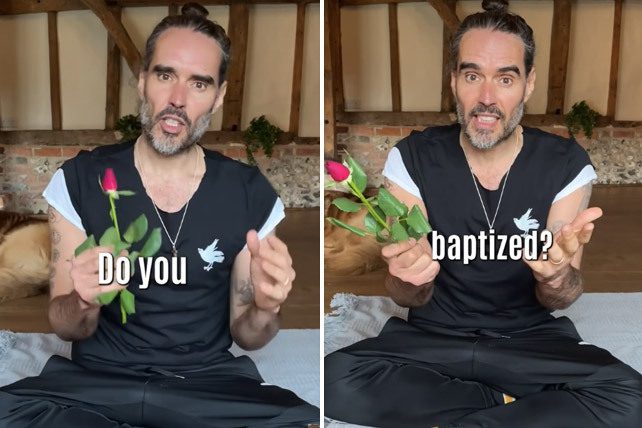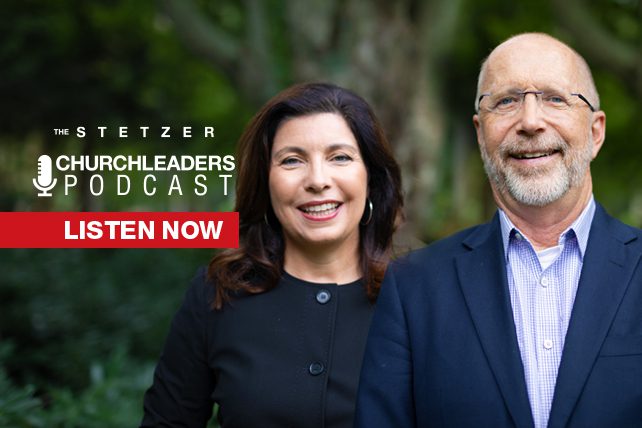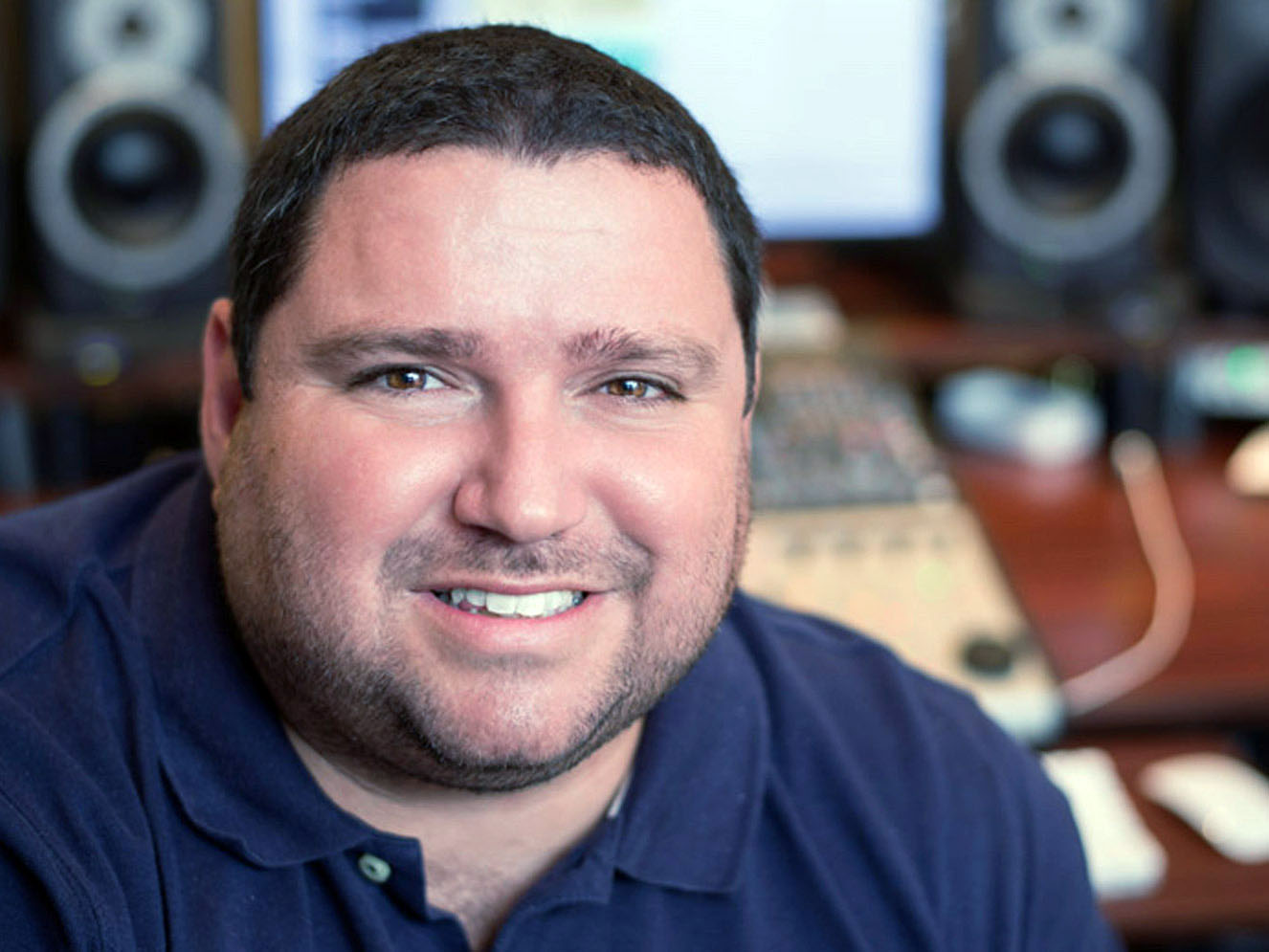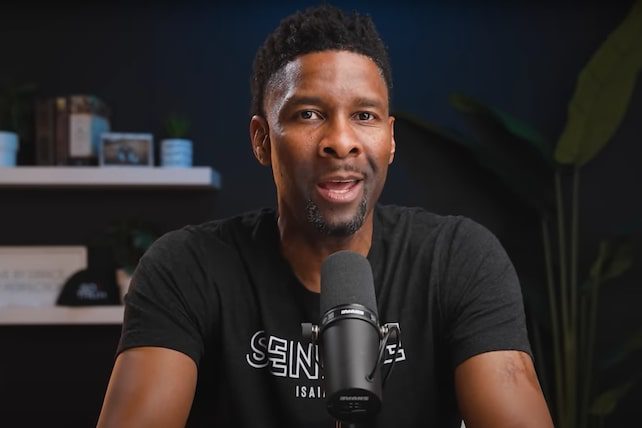Jim and Heather Sells on The Stetzer ChurchLeaders Podcast.mp3: this mp3 audio file was automatically transcribed by Sonix with the best speech-to-text algorithms. This transcript may contain errors.
Ed Stetzer:
The sets are. Church Leaders Podcast is part of the Church Leaders Podcast Network, which is dedicated to resourcing church leaders in order to help them face the complexities of ministry. Today, the Church Leaders Podcast Network supports pastors and ministry leaders by challenging assumptions, by providing insights and offering practical advice and solutions and steps that will help church leaders navigate the variety of cultures and contexts that we’re serving and learn more at Church leaders.com/podcast network.
Voice Over:
Welcome to the Stetzer Church Leaders Podcast, conversations with today’s top ministry leaders to help you lead better every day. And now, here are your hosts, Ed Stetzer and Daniel Yang.
Ed Stetzer:
Welcome to the Sister Church Leaders Podcast.
Daniel Yang:
Where we helping Christian leaders navigate and lead through the cultural issues of our day. My name is Daniel Yang, national director of Churches of Welcome at World Relief. And today we’re talking with Jim and Heather sells. Jim’s the Rosemary S Hughes Professor of Christian Thought in Mental Health and co-director of the Keras Institute at Regent University. He’s a licensed psychologist and author of several books. Heather is the managing editor for CBN news. She’s previously worked for several outlets in print journalism and television news as a reporter, assignment editor, and producer. Jim and Heather’s new book, co-authored with Amy Trout, is Beyond the Clinical Hour How Counselors can Partner with the church to Address the Mental Health Crisis. Now let’s go to Ed Stetzer, editor in chief of Outreach magazine and the dean of the Talbot School of Theology. Well, it’s.
Ed Stetzer:
Good to have this conversation. And you’re I think we’re going to find it helpful. And for pastors and church leaders, we sort of like have this assumption that, you know, well, we know what we shouldn’t do. Maybe now, maybe we should refer people and more. But I’m really excited because this book and I wrote the foreword to this book, by the way, I should add. But this book goes deeper. And this conversation, I think, will go deeper to talk about that partnership that I think is helpful and really essential for us moving forward. So so again, I’m starting at the front by saying and that’s, you know, the title. Oh, I just complained about the ridiculously long title. But anyway, beyond the clinical hour, how counselors can partner with the church to address the mental health crisis. But it’s one of those things where the subtitle really gets at what we need to get to. So let’s jump into our conversation. Super glad to have you both on. Um, we are I mean, I think by now everyone sort of sees that we’re on a, uh, we use the words escalating crisis. We’re seeing, you know, recent statistics from the CDC about suicidal ideation. We’re seeing we’re seeing unsustainable realities in these in the mental health crisis, escalating crisis. Jim, let’s start with you, uh, and kind of unpack a little bit what what’s going on? What are you seeing with this escalating crisis?
Jim Sells:
It is an escalating crisis, and it is not a Covid produced crisis. It’s a Covid accelerated crisis. It preexisted. And for the past 15 years, in the psychopathology research prevalence data, we’ve continued to see, uh, continual, uh, increase in literally every category of mental health need. And this is something that is a bit of a bafflement. Um, Ed Higgins, a, uh, psychiatrist at the University of South Carolina, writes that in in every category of health care, we’re winning, uh, except in every aspect of mental health care. So cancer, we are we are reducing the death rate of cancer. Uh, statins are incredible for heart disease. Like, we we are, uh, we are we are declining the slope of diabetes like we are. Really. Advancing rapidly in every aspect of health care, except when it comes to the behavioral health care and the capacity of people to live well. So there’s that that’s that prevalence of literature. The prevalence in the literature says, oh my goodness, we’re losing on every front. And and we’ve been losing it on every front for the past 20 years now, uh, this thing really kicked off in my mind when I realized, as folks would call me and I’d be full and I would have no place to refer anybody because they’re full and, and, uh, a parent who needs their child to see a psychiatrist for, for an ADHD med check or assessment.
Jim Sells:
Well, that’s let’s wait for six months. So there is no way that this can can this problem as it in the current status current structure is going to improve. Uh, lest we have a different system and the system that we have, think about the clinical hour that that the title of this is, I see folks for 50 minutes and a full time therapist is going to see about 200 different people a year, and we have a line out the door of 20 million. So at 200 a pop, it’s going to take a long time for that line to ever be extinguished, so that the idea of we can not meet the mental health need with the current structure of professional care. Enter the church. Uh, the place where there’s eight churches in every zip code with hundreds of people that have been affected by mental health care, mental health need that have a capacity to render, uh, some level of intervention. And that’s really where we are. Yeah.
Ed Stetzer:
But here’s the thing, Jim. And you know this. We have been taught to, um, refer in many cases, like, like that’s almost the only tool in our toolbox. And I, I told people, matter of fact, I think Heather and I did an even an interview about this back in the day. Um, the because because pastors and police tend to be the first responders. It’s it’s just statistically that police officers respond to mental health crises and pastors, religious clergy are responding to mental health crises. And then what we’re what we’re taught to do is to and I think importantly, that we I’m very pro partnerships that are here. Right. I think it’s good I think that Christians and have really struggled sometimes to to engage the mental health community. And in part you go back a few decades, there was there was hostility. That hostility is not so much a prevalence issue as much now. But but so there’s something between the the crisis moment and then our referral because not everyone I mean there’s different ways to refer. So talk to us about what it looks like to create an ecosystem for some of the and this is a big part of what the book talks about. It’s my language where my word ecosystem. But but talk to us about what it looks like to do that. And then if you don’t mind, Jim, share a little about that. And then Heather, after he has an opportunity to share, I want you to share some of the places you’ve seen that take place as well. So, Jim, and then so the idea.
Jim Sells:
That we want to communicate to the broader culture is, uh, a paradigm shift, a way of rethinking the way we deliver care. And let’s start with. You can start with the clinical side or start with the pastoral side. Either way, think about, uh, if if the church were responsible or clinicians were responsible for the mental health care, the, the, the provision, the hospice care, if you would, to to use a great, uh, biblical terme of 10,000 people, uh, not 200 that come in and, and pay pay me my, uh, in my insurance, uh, driven, uh, in session. But I’m, I’m responsible for the community of 10,000. What would mental health care look like? Well, it would be triaged in which I am trained to treat the more severe. But the community I can oversee to address the the daily human need that comes from from that can be addressed in just good relational presence where where me and you and under the the guidance of the Holy Spirit and the wisdom of Scripture can figure things out together. And that can be achieved with a level of of me helping you in the church, maybe, maybe 50 people in a large church or ten people in a small church be able to to render immediate care for the folks that that are not in psychological crisis. But there is significant pain occurring and and the church can have a presence whenever there is pain. Uh, and, and that’s the, the revision of the way we think about mental health care delivery and forget about maybe mental health care. Just call it helping. Uh, the helping of the church. Uh, to render, uh, more effective, this huge need that is out there. What have you seen?
Heather Sells:
Yeah, well, we, uh, we were meeting with some mental health leaders over the weekend, and we were talking about, uh, a metaphor of people are literally bleeding out in the church, if you will. And, uh, pastors are saying I’ll refer you, but these referrals are so low. And so people are the equivalent, if you will, of bleeding out. And what’s exciting for me, though, is to see that a lot of churches and organizations and faith based leaders are already, uh, doing work in this space. It’s more at the organic, bubbling up level. It’s not on a national scale, but it is happening. Uh, some of what we’re seeing is we’re seeing, uh, peer groups, uh, starting in churches, and that can be people who are dealing with a mental illness themselves or their caregivers. And of course, keeping in mind that some mental health illnesses are so debilitating and will last for a lifetime. And so that puts caregivers under tremendous strain. So we’re seeing groups like fresh Hope, Grace Alliance, uh, Anchor International, uh, based in Colorado. They are developing curriculum and peer group models that churches can implement. And it can really be a powerful place for people to have their needs met for to to live out their faith journey. And it can be a win for the church on multiple levels. Uh, also want to say that we are really aware of the issue of pastor burnout. Uh, pastors feeling overwhelmed. So our our thought process behind a lot of these interventions, and I think behind what we are seeing already take place is pastors. We don’t want to add to your plate. We want to relieve your burdens as well. Uh, so we are just beginning to see some of the, uh, interventions take place, some of the creativity. But it’s happening. Uh, and it can also just happen around a simple consult where, um, a pastor talks with a therapist about someone in their congregation. They give them a few ideas, and the pastor is able to effectively deliver some care. Uh, so a lot of different ideas are being tried out right now when we talk about that in the book.
Daniel Yang:
Heather, let me follow up on that. Um, from your perspective, do you see, um, is there a gap of both knowledge between what the health care profession is understanding and discovering around mental health and then what pastors understand? Um, because there seems to be in my mind a, an acceleration of how the health care industry is actually understanding how humans behave and what’s causing mental health issues. But maybe a delay in the education of church leaders. So I’d love to get your thoughts around that. And then maybe, Jim, I’d love for you to just help us to understand, like, where are you seeing the the gaps right now, where we need to ramp up both the education but also the training of pastors?
Heather Sells:
Well, I’ll say something briefly, and then I’m really going to hand the question over to Jim. But we have talked about how pastors have been trained, if you will, to, hey, stay out of the mental health lane and just refer out. So that is definitely a thing. And what we are more exploring and advocating for in this book is, hey, churches can be helpers. And we’re not just talking about staff, we’re talking about laypeople. Uh, there’s tremendous things that laypeople can do that can make a difference, uh, with a small amount of training. And so, uh, again, it’s a paradigm shift. It’s a hey, church, we’ve really encouraged you to refer out, but now we want you to think about how can you play a role in this space. And I’ll let Jim amplify on that. Sure.
Jim Sells:
Related to what you just said, Heather, probably the significant gap is the concept that me as a psychologist, as a counselor, um, I am the best person to to carry the full weight of someone’s mental health need. Like, as a system psychologist, one who’s been trained in family and couple therapy, looking at groups of people, how they interact now the community is is the has the greatest capacity for that kind of help. I help a lot in terms of redirecting, but I’m only one hour a week at best. And and what do people do for the 23 and six days? Uh, well, they’re in their community. They’re in their homes, they’re with their friends. They’re engaging in in good or bad strategies that have an ongoing accountability. And it is in that ongoing accountability that the church exists in, in its strongest form, call it discipleship. Uh, that’s that’s where mental health we think about disease, but let’s just call it really good living and the acceptance of disease with the responsibility of how we will live well with this disease. Uh, some things will not change. Uh, there are aspects of psychopathology that that are not going to get better. But we can live well with this. And that’s where the church can come in and provide a tremendous level of support that then allows me to see someone once a month, instead of every other week, or every week, or 2 or 3 times a week.
Jim Sells:
So the church takes on a massive role potentially in in being going back to what its original calling was to offer hospitality. And we’ve I’ve seen that word grow in the literature within church leadership and theological publications like hospitality is in the process of being rediscovered, not as the one that the the person that makes a really good pie, but one that can sit well with people that they love and people who love them. And that’s the that’s the thing that I cannot do as a psychologist. I can’t love someone. Well, I can help them with an empirically validated intervention. But it’s not really loving them. It’s not really standing in the midst of their pain ongoing. Uh, it’s it’s creating an external tool and and helping them. Helping them learn it like a teacher would learn it. But the teacher never goes home with the person. Uh, so that’s where I see the biggest gap in even changing the way that professionals are trained to think about mental health care. Not as the provider, but the overseer as as the one who creates a community psychology, a community intervention that uses churches as its primary tool.
Ed Stetzer:
So it’s it’s a bit of a, you know, it’s a bit of a journey that and it’s sometimes you use the phrase paradigm shift. I think that’s a it is a paradigm shift. But it’s also I mean, I remember after the death of, uh, Rick and Kay Warren’s son, he died by suicide, that we, um, you know, I wrote some articles, we did some research. I wrote an article on CNN that got a lot of traction and conversation, and partly in that in those places in the research, I was saying no, Christians need the mental health community. And because there has been maybe historically, a bit of an anti mental health, uh, not, not maybe there has been it’s been there have been an anti mental health. It’s like those, those don’t, don’t do that. And then and then there’s always some people and again I probably they’re probably not listening to the podcast anyway. But there are some people who say you don’t need you know, you don’t need psychology or mental health intervention. You know, it just, uh, you know, there’s counsel by the scriptures and that’s all you need. And I and I would and I would say, as one who really believes that the scriptures are true and for us and yet, yet at the same time, I also recognize that, as you mentioned, physical health earlier, Jim, that sometimes I might refer to someone from mental health.
Ed Stetzer:
So it seemed like maybe 15 years ago, we were trying to persuade pastors and church leaders to refer and have a partnership. And maybe, maybe there’s a pendulum swing that’s there. I want the I think the paradigm shift is there. I wrote in an earlier piece years ago that, you know, we kind of want to be a friendly church. I think that’s good. And then we want to be a caring church. I think that’s great. But Galatians six two tells us to carry one another’s burdens. We’re supposed to be a carrying church. We’re supposed to carry one another’s burdens. And in some sense, that’s what you’re calling to. However, and this is the longest question ever. My apologies, Jim. However, this this is scary to pastors because because it can be overwhelming when you start leaning in on some of the mental health issues and questions that are there as well. So talk to us about some of what this would actually look like. Um, what needs does the mental health care world have that the church can meet and how would they meet them?
Jim Sells:
I’m a trained psychologist, I love psychology, I love the profession. It has done a great thing for the culture, for society and for the, uh, for the Christian church. Period like so I’m not I’m not advocating the the church. Take this back completely. I’m advocating for a good dentistry, when in years past, you could have just gone to a barber and had your teeth pulled. Like, no, there’s a there’s a science here that can allow you to save your teeth, not just rip them out of your mouth. Uh, and so utilizing the science is just a really, really good dental care, and it’s really, really good human care. Now, enter the church. I don’t think that two people from, uh, Smith Center, Kansas, at First Christian Church in small town, USA, uh, should be addressing major depressive disorder. No, I know how to do that. But I do think there’s a lot of people in Smith Center, Kansas. Um, that are sad, that are discouraged, that are stressed. And so that carrying piece that you identify and that’s really 85% of, of mental health need who shows up to providers when the church can be that that carrying with me as, as the triage person, me standing at my church and saying, you know, with a brief assessment, I can help the church decide whether this person is good for Marge and and Ralph to see as, as two couples, as a couple that loves to work with others and who who should be the should they be referred to someone with clinical training with greater expertise in the nuances of severity? So, uh, I can make that call working within my church, and but I don’t need to see all those people.
Jim Sells:
I need to prepare a group within that church to effectively manage them. And what we’re trying to do, we’re working on a project right now, a grant from the National Christian Foundation to develop protocols around, for example, a five limit curriculum for individual care. And then we transitioned them into the church’s small group ministry, who have also transitioned from previous five session individual care. So we have a community that we’re growing around, mental health slash human caring needs. And and it is done in conjunction with professionals like, okay, the the person that suffers from bipolar one. No, that’s not a really good, uh, person to give to to one who’s not prepared for the for the complexities. So someone making that assessment in the church and someone like, not yet. Before you go to this individual or small group ministry, let’s let’s stabilize you with, with a professional in our community, in our circle. So we are collaborating together, the church and the profession, uh, triaging and and supporting one another is respective needs.
Daniel Yang:
I’d like to brainstorm something with the both of you. Um, and maybe we can hear from you. Heather. First, um, you know, may historically, in the US, uh, mental awareness, um, month and a lot of churches will either, uh, highlight the issues of mental, um, illness, uh, and they might even belt out, like, uh, a sermon series. Um, what are some healthy ways that you think, uh, pastors and church leaders can take practical next steps to, number one, raise awareness, uh, in their congregations. And then two, how do they collaborate with practitioners, with clinicians? Bring in that voice, uh, to make it, uh, very practical for their church members to see that the two can work together. So what are your thoughts from on that?
Heather Sells:
Well, I’ll just start briefly. Uh, we’ve seen, uh, that when pastors and we write about this in the book, pastors like Jack Graham, uh, pastors like Bishop Walker at Mount Zion in Nashville, when they talk about mental health from the pulpit, it is indeed powerful. And it, uh, we’ve we’ve seen a lot of the stigma go away, but it’s still an issue. And so definitely speaking to it from the pulpit is huge and it encourages all the conversations. Uh, so that can be really helpful. And then for another next step for church leaders is really working on those relationships with Christian, uh, mental health professionals in your community and seeing if you have a shared vision or can create a shared vision and start to create some synergies. Yeah, I.
Ed Stetzer:
Think it’s key that, um, sermons break stigmas and talking about these things and I’ve even, I’ve even, like tweaked, you know, where I, what I, when I’ve preached what I, when I would have preached Philippians four, you know, be anxious for nothing, but in everything by prayer and supplication with just a sentence or two I can speak to and invite people to. But if you find yourself stuck in this in a pattern of anxiety you can’t get out of, and then we have people in our church that can help. Make some of those connections. So I think I think but part of the challenge is there’s an intentionality. This is back to your your paradigm shift thing because we we lose some things when churches and mental health practitioners remain siloed. So what does it look like? And I like to hear from both of you, Jim. You first. But what does it look like when they’re not siloed? What does it look like when they’re working together? You mentioned triage. You mentioned your church. So come with me to first Assemblies of God down in, you know, wherever Texas. And what does it look like for first assembly of God to have a plan? Explain it to us.
Jim Sells:
Multiple plans exist. And, um, we’re we’re trying to develop a, a description of all the models that that are emerging, uh, because this is such a way, new ideas are coming, kind of if we’re in such a high change mode. But let me just give you an ideal format. An individual contacts the pastor. My my adolescent daughter is cutting an and the pastor, uh, calls, contacts, their mental health professional liaison within the church community. And they might have two, three, 4 or 5 people that fit in this role. And they make an initial assessment, what should be done here. And two things will likely happen in that case one, stabilization and two, the formation of community. And three, care for the parents. Uh, because there’s a tendency in this case for, for parents to over control, like, I’m, I want to make sure there’s nothing sharp in your, in, in your backpack. And I know that’s a pencil. So you could hurt yourself with that pencil, so I will I’ll give you chalk or know you could eat chalk so I, you know, it’s the tendency for parents then to over control. They’re going to need the same level of support and help, uh, that that the adolescent is really crying out for. So being able to, to advocate for a the best clinical practice and be the best community support and the community support is going to exist withinside the church. So then then that community support within the presence of others that that have experienced very, very similar life journeys along with the best medication coming from a psychiatrist, the best, uh, uh, empirically validated treatments coming from an LPC, uh, marriage and family social worker or psychologist and the continued presence of the church as, as the place to go for care.
Heather Sells:
One of the reasons that we did, uh, name the book Beyond the Clinical Hour is because the clinical hour itself, uh, there’s something before it, during it and after it, and that can be the church. And so we’re really asking the church come alongside and, uh, I talked with some counselors who said, it is so powerful when a pastor says to someone in their church, I’m praying for your therapy appointment this week. It’s at two, right? I mean, that those kind of just changes in our culture can really go a long way. And that’s some of what we’re beginning to see. We’re hearing stories of people who are in a peer group in their church saying, I don’t see my therapist as often as I used to because I don’t need to because I have this support, uh, it is going to look different in every church. Uh, but what we are advocating for is for this to really be on the radar and for churches to really develop strong relationship with therapists and their community and just see where it all goes.
Jim Sells:
It also goes the other way, too, uh, with Gen Ripley here at Regent, uh, in our Keras Institute, we’ve just completed a Templeton grant where we, uh, developed training for marriage and family therapists in secular institutions to utilize the the religious and spiritual traditions of people that come to see them. So the profession is not used to making referral to the church. Uh, and, and in this is this idea of bracketing out those religious values so that they’re not part of therapy. And we are arguing in demonstrating the effectiveness of know you, you want to bracket in you want the person’s faith tradition to become a central part of therapy. Uh, it’s it’s like, let’s do therapy, but, but, but let’s cut out your community. Well, like, we’re going to fail. Uh, so you you would never think of, of let’s do therapy, but let’s remove your support system. Uh, or what does your faith tradition speak to this theme of anxiety, as you mentioned, Ed, how does how does your faith tradition speak to it that can be useful for you? I might not understand it as a as a secular therapist, but you understand it. So teach me about it, because it’s not trying to. Mind your mental health. It’s trying to bring support to it. So that idea, it goes both ways where the clinician, secular or faith based clinician needs to have the community of churches by which the anybody that they see is tied to someone that has depth than has, has, uh, width and breadth to be able to render support long, long beyond the clinical hour.
Daniel Yang:
Yeah. Love, love the word image there with the title of the book. And also the subtitle is how counselors can partner with the church to address the mental health crisis. Um, if I’m a pastor and this is new to me, which you can imagine that for some pastors, if their training is strictly theological and, um, and providing pastoral care, um, and then this is still sort of the therapeutic language is new to them. What are some immediate next steps that a pastor can take in order to be informed in a healthy way and not necessarily reading a bunch of pop psychology books, but what would be the best next step for a pastor who wants to get initiated into this, um, gym? And then maybe Heather, uh, any any thoughts that you’re seeing to.
Jim Sells:
Every church cannot do everything but the community of pastors in any community, there are enough resources to address every type of need. So I think if I’m if I am consulting with a pastor, uh, that that is in a suburban, urban or rural community, I’m going to ask, uh, who’s in your immediate network that that can can collaborate with you, the other pastors in the church and the other, uh, professionals within the radius of of your, your. Immediate circle of influence. So that’s that’s going to be step one. Um, step two, the abundance of resources that exist now that are doubling and tripling every year, like churches are seeing, uh, this change, I, I bring in the introduction of the book. This really this whole thing triggered in my mind this, this serendipitous experience of be driving down a country road in Anderson County, South Carolina, about, uh, not far from Clemson. I drive past a church and on the marquee said family council available. The grammar was even poor. Uh, it didn’t end in an infinity. They ran out of letters. Uh, it just said family Council available. And I thought of all the things that this country church could put on their marquee is not like choir practice on Wednesday night or, uh, church softball game on Saturday. We’ll go beat the Methodist. Uh, it was if you have a need within your family, this is where you come show up here. We can help. And that idea is just. Extending through churches because everyone has been touched by the pain of a suicide, of an eating disorder, of bipolar disease, of, of, uh, personality disorder, uh uh, such as borderline or narcissistic like we have been hit by schizophrenia and substance abuse. Someone knows a fentanyl fentanyl overdose. Uh, so this affects everybody, and everybody has a commitment to bring care to the broader community.
Heather Sells:
I think of, uh, during the Aids crisis, uh, Rick Warren had a vision for churches in Rwanda, uh, really becoming the healing centers for the HIV crisis, where you could go to get help at your local church. And I think that’s our heart is this is the mental health crisis. What if churches were to become the place where you could go to start your journey, and we’ll carry you through your journey?
Ed Stetzer:
So good, so good. I remember, um, you know, I totally is going to seem like a far out of the other field, but these financial organizations that help people to deal with their budget, um, are kind of interesting. And they really taken off in churches. You got 2 or 3 big ones and like churches are offering courses on financial freedom and all that sort of stuff. And I think that’s great because it’s answering a question that people have. But the reality is sometimes they need to get an accountant to help and sometimes need to get a lawyer to help because we’re in the worst of the situation. And for me, I mean, I read I read the book and I really found it helpful. And again, it’s beyond the clinical, our how counselors can partner with the church to address mental health crisis. But the key word to me in the rather long subtitle is the word partner, because I think maybe I’m wrong, but I think most people listen to this podcast are referring from church to counselor. But this is a call to partner. So just last last word from from either or both of you. Um, encourage the pastors and church leaders to to partner. Why should they do this?
Jim Sells:
I believe it’s central to the church’s mission to be the healing agent within their community. And I, uh, I write of in church history in, in the third century under Dionysius, uh, writing about. We stayed and we died. We we stayed in the urban centers and we ministered at the same time. The the emperor of Rome, Julian the Apostate, said like, why can’t we do it like these Galileans? And so, like the church’s presence within the culture was a caregiving presence. And I think that’s what accelerated the growth of the church far more than it accelerated first, before, uh, before the rise of Constantine, it it really took off with the presence of suffering and the church staying like here we have suffering church show up. Uh, you can do far more in your church evangelism and your outreach and your small group ministry. And like the invitation to show up at your door, uh, a recent conversation with a pastor. Small church 150 people. And he has said in the last 18 months I have logged 500 phone calls from outside my church, people calling to ask for help. Like I we don’t we we we don’t have enough referrals. We don’t know what to do with all of these folks that are coming. Um, this is a suburban church, small church, 500 in in 18 months. That’s better than one a day. Uh, so so that sense of. All right. Uh, you have a potential to be incredibly effective because the people are coming to your door wanting help.
Heather Sells:
Yeah, I agree, it’s it’s the equivalent of people bleeding out in your church. And, uh, and I think it’s also, it’s it’s one of the biggest issues of our day, and it’s, it’s the language that people speak now, they’re talking about this because it’s so prevalent. So for the church not to address it is for the church to, you know, go on a path of irrelevancy, if you will, and to and to miss the moment. So I, I think it’s incumbent on the church to take this seriously.
Daniel Yang:
We’ve been talking to Jim and Heather sells. Be sure to check out their book, co-authored with Amy Trout. Be on the Clinical Hour How Counselors Can Partner with the church to address the Mental Health Crisis. Thanks again for listening to the Sister Church Leaders Podcast. You can find more interviews, as well as other great content for ministry leaders at Church Leaders Compass. And again, if you found a conversation today helpful, we’d love for you to take a few moments. Leave us a review that’ll help other ministry leaders find and benefit from our content. Thanks for listening. We’ll see you the next episode.
Voice Over:
You’ve been listening to the Stetzer Church Leaders podcast for more great interviews as well as articles, videos, and free resources, visit our website at Church leaders.com. Thanks for listening.
Sonix has many features that you’d love including share transcripts, enterprise-grade admin tools, generate automated summaries powered by AI, collaboration tools, and easily transcribe your Zoom meetings. Try Sonix for free today.































